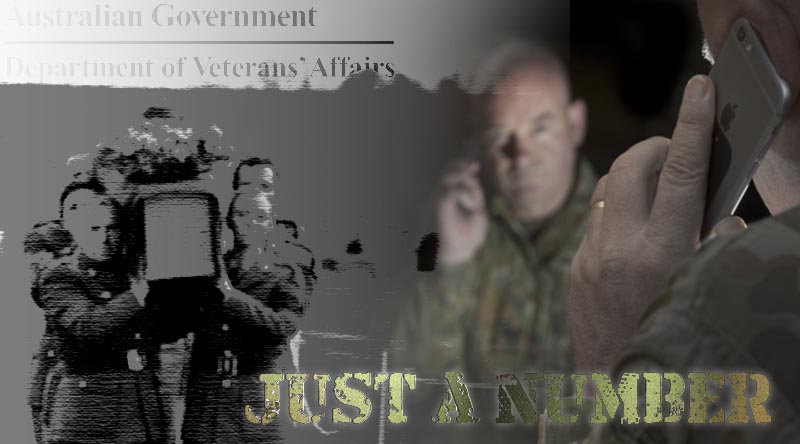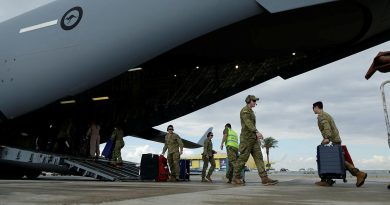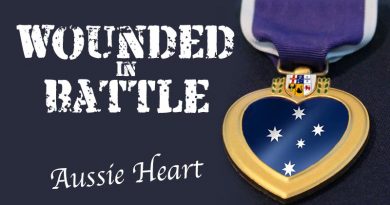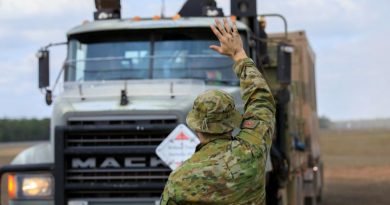Report provides further understanding of Defence and veteran suicide
Share the post "Report provides further understanding of Defence and veteran suicide"

EDITOR’S NOTE: Is it just me or does the following 564-word press release fail to say anything at all about the headline report, except the actual two-year-old number for veteran suicides in 2018? Aside from the regurgitation of all the (good) things the government have done, where’s the analysis of the ‘understanding’ provided by this new report? Where is even the slightest hint of what the report says, except for the number? Where’s the link to the report so we can read it for ourselves?
Minister for Veterans’ Affairs
Minister for Defence Personnel
Darren Chester
MEDIA RELEASE
(in full, unedited)
EVERY year, too many Australians are taken from us by suicide and sadly our ADF personnel and veterans are not immune.
The latest report on incidence of suicide among current and ex-serving Australian Defence Force (ADF) personnel was released today by the Australian Institute of Health and Welfare, revealing 33 deaths by suicide in 2018.
Addressing this tragedy is a national priority for the Government and while the annual figure in today’s report is lower than 2017, we still have work to do to eliminate this tragic loss of life.
We can all acknowledge that there are many different factors that can affect someone’s mental health, the current pandemic included, and where a person’s service in the Navy, Army or Air Force is the cause of poor mental health, we are absolutely committed to ensuring they are supported.
This is why in 2017 we expanded access to free mental health treatment to include any mental health condition, regardless of whether or not the condition is linked to a veteran’s service. This has uncapped funding, so where there is a need, it is met.
We have ensured veterans can access financial support where they have a compensation claim for a mental health condition being processed by the Department of Veterans’ Affairs (DVA).
And we have made progress in ensuring ADF members have the support to succeed in civilian employment, and we are highlighting and celebrating the skills and experience they bring to the civilian workforce.
Most importantly we have improved the transition process from defence, making support needs-based, improving the communication between DVA and Defence, and ensuring those most at risk have the support they need, when they need it.
This transition focus is why we are establishing the Joint Transition Authority, announced in the Budget, to ensure all transition services are working together for the best possible outcome for ADF members, veterans and their families.
The recent Budget prioritised further investment into mental health, transition and employment support, providing more than $100 million to provide a one-off fee increase for psychiatrists, allied mental health, social workers and community nursing providers; train psychiatry registrars in veteran and military mental health, provide GP-led care coordination for veterans with mental health conditions accepted as service related, and expand the Open Arms – Veterans and Families Counselling (Open Arms ) Community and Peer Support program.
But there is always more to do and this is where the enduring focus of the National Commissioner for Defence and Veteran Suicide Prevention will play an important role.
Their work will help us to understand the factors and systemic issues that may contribute to suicide risk and provide recommendations to improve prevention efforts.
This will further improve our understanding, allow us to reform the system and provide the right help to all those who need it.
Mental health and suicide prevention is everyone’s business and we all have a part to play — check in on a mate, ask them if they are ok, have a conversation and help them get the support they need. Help is available so please reach out.
Open Arms provides 24/7 counselling and support to current and former ADF members and their families. They also offer face-to-face and video counselling, online or in-person group treatment programs, suicide prevention programs and crisis accommodation support.
They can be reached 24 hours a day, seven days a week on 1800 011 046.
EDITOR’S NOTE 2: Minister Chester could have done us all a favour by reading and repeating at least some of the information provided by the authors of the report, in their press release. The actual report can be found in full here – it isn’t a secret – no excuse for not linking to it or quoting from it.
.
.
.
.
.
.

.
.
Share the post "Report provides further understanding of Defence and veteran suicide"





